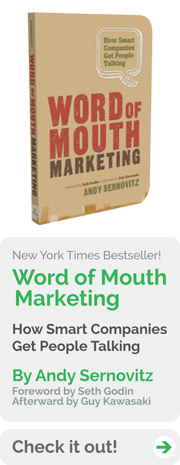This is a guest post from Douglas Atkin, CEO at The Glue Project and author of “The Culting of Brands.”
I keep being asked this question.
Not surprising really, since I go on about community a lot. And perhaps not surprising because it’s one of those culturally familiar, but rarely examined ideas like fairness, or even democracy. It’s a comforting, but somewhat vague concept, one that’s used frequently by all of us, and relentlessly by politicians (who tend to use it as an easily grabbed motherhood, guaranteed to legitimize any worldview). Unless you’re a sociologist, you’re unlikely to have spent much time thinking about what community really means. And what it takes to make one.
But perhaps it’s time to do it now.
Community is making a comeback.
We have a self-confessed community leader in the White House. Data shows a climbing desire for more contact with neighbors and more time with the family.
Rugged individualism as a culturally defining idea (whether your preferred symbol is the Marlboro man or the survival-of-the-fittest Gordon Geckos of Wall St.) may indeed be central part of the national character. But it has eclipsed, to our cost, the equally defining, and interestingly juxtaposed idea of every American as a member of a vigorous community…something seen as uniquely American by a French man, no less: De Tocqueville.
Whatever the reason, I keep being asked to define community. So, based largely on the hundreds of interviews I conducted very self-conscious communities (like cults and religions) as well as those that are less so (like chess playing clubs and some neighborhoods) here’s my take.
Communities hold things in common.
They could be needs, like a cancer survivors’ groups or new-in-town social clubs. They could be ideologies if the community is a religion or political party. It could be proximity if it’s a neighborhood. Or a cause if it’s a movement, fighting, say, for the environment or against human slavery. Or it could be interests like opera, NASCAR or technology. Whatever they are, their members align themselves with those who share these things in common.
But I think this begs a bigger and more interesting question: does the nature of the thing that’s shared predispose a community to be stronger or weaker?
Is a shared ideology inherently stickier than a shared hobby?
I would argue yes, it is. Beliefs not only tend to trump facts, and values trump policy arguments, but they also tend to beat other kinds of commonality in the ability to generate glue.
An alignment around more government or less government, around a personal God or atheism, or even around being an American or a Frenchman (because they’re particular national ideas that are packed with ideology), is a stronger alignment than being a chess player or even a neighborhood resident.
Of course there are qualifiers to this, which I’ll talk about in a moment. But I’ve seen ideology forming the strongest glue for this key reason: its ingredients…values and beliefs, a shared vision of how the world should be…are also the ingredients of self-definition at the most profound level. Being a born-again Christian or Sufi is normally central to a person’s idea of themselves. So is being a conservative or a liberal. Imagining a world where women and men are equal or race is irrelevant is more self-defining than if you’re an opera lover or you happen to live Manchester.
If people share self-definition at the level of beliefs, values and hopes, that makes for an extremely strong community. If I identify with the group because, in the final analysis, we say the same things about what makes us who we are as individuals, that’s a bond that’s pretty tough to break a part.
There is another factor that cannot be ignored in an analysis of what makes a strong community. Mix in this, and you can take a lower order commonality to a higher degree of stickiness.
The other thing that’s critical to community is contact.
Those communities that have more interaction between their members tend to be stronger than those that have less. Community is a contact sport at the end of the day. There is a ton of data that is in agreement with my own research that rubbing people together makes people sticky.
We found at Meetup that if people attended four or more events, whatever the purpose of the group, they tended to be more committed than those who attended less. And the primary cause of that stickiness was that four attendances was the minimum number of times it took for relationships to form, and for people to say to themselves things like “I like these people. Some of them could be good friends. I’m coming back not just because I want to be a better knitter, but because I want to hang out with Sean and Jessica.”
If you have a community that’s ideologically based and it has frequent contact between its members, then of course that’s the strongest formula of all.
I’m fascinated by The Church of Jesus Christ of Latter Day Saints (the Mormons) because they’ve cracked this code. They get both right. Their ideology is highly distinctive (so much so that it is seen as heretical by the established Christian denominations). And they have mandated contact between members to a much higher degree than other Christian churches and several other religions.
There are very few paid clergy in the Church. The work of running this global organization, from HQ to a local ‘ward’ is done primarily by its members, massively increasing opportunities for interaction. They don’t just meet at church on Sunday either. There is a rigorously applied program of contact that accounts for most days of the week. For example, whether in Bangkok or Birmingham, Mormon families meet on a Monday night for Family Home Evening. The Relief Society (a Mormon woman’s organization) drops in to give spiritual and temporal assistance. Home visits are undertaken to families to teach the gospel at least once a month.
Can you make communities stickier if they’re founded on lower-order commonalities?
Yes, if you amp-up ideological alignment. And, for bonus points, increase interaction too.
Where proximity was not enough, competing visions for a town’s future created the missing glue between individuals in a town in upstate New York.
My friend Sam Pratt helped lead its fight against the building of the world’s largest cement plant in its historical location. This external threat…or opportunity, depending on your point of view…surfaced ideologies and radicalized populations that had been dormant for decades in this sleepy Hudson River town.
This external stimulus clarified beliefs and crystallized needs within two distinct populations in the city. The more recent arrivals from New York City who had led the revival of the main street with shops, cafes and galleries were not surprisingly, galvanized around the idea of preserving what had been done to reinvent ‘local’ community. In contrast, the population that had been there for generations and lived through the booms and busts saw the plant as an opportunity for jobs and tax income to help pull the town, once again, out of the economic doldrums.
These populations clustered around differing worldviews of what constitutes community, the virtues or threats of globalization, the role of corporations, the localization movement and classic blue and red political ideologies.
The fight was fierce. But the ‘Stop the Plant’ side won, and they won famously. There will be more on how it pulled it off on The Glue Project. It’s an instructive story about how community can work when it has to…and I’ll write it with the help of Sam Pratt. But in summary, the winning side prevailed through a combination of very skillful ideological management, relentless energy and lots of interaction between its members.
So, a community is a population that shares things in common, whether they’re online, offline, local or global and whether the thing that’s shared is an interest, cause, need, passion, proximity or ideology.
I would argue the thing that’s shared is a determinant of the strength of the community, with the proviso that the degree of member interaction plays a huge part in the degree of stickiness.
This is a big and emotive subject.
What do you think community is?
About Douglas Atkin
Douglas believes that community is the engine of loyalty -- to companies, brands, religions, causes, sports teams, whatever -- and that social glue is generally a good thing. He works with organizations to create to create stronger glue through better community platforms and programs. He does this through his venture: The Glue Project.
- Web |
- More Posts(12)


